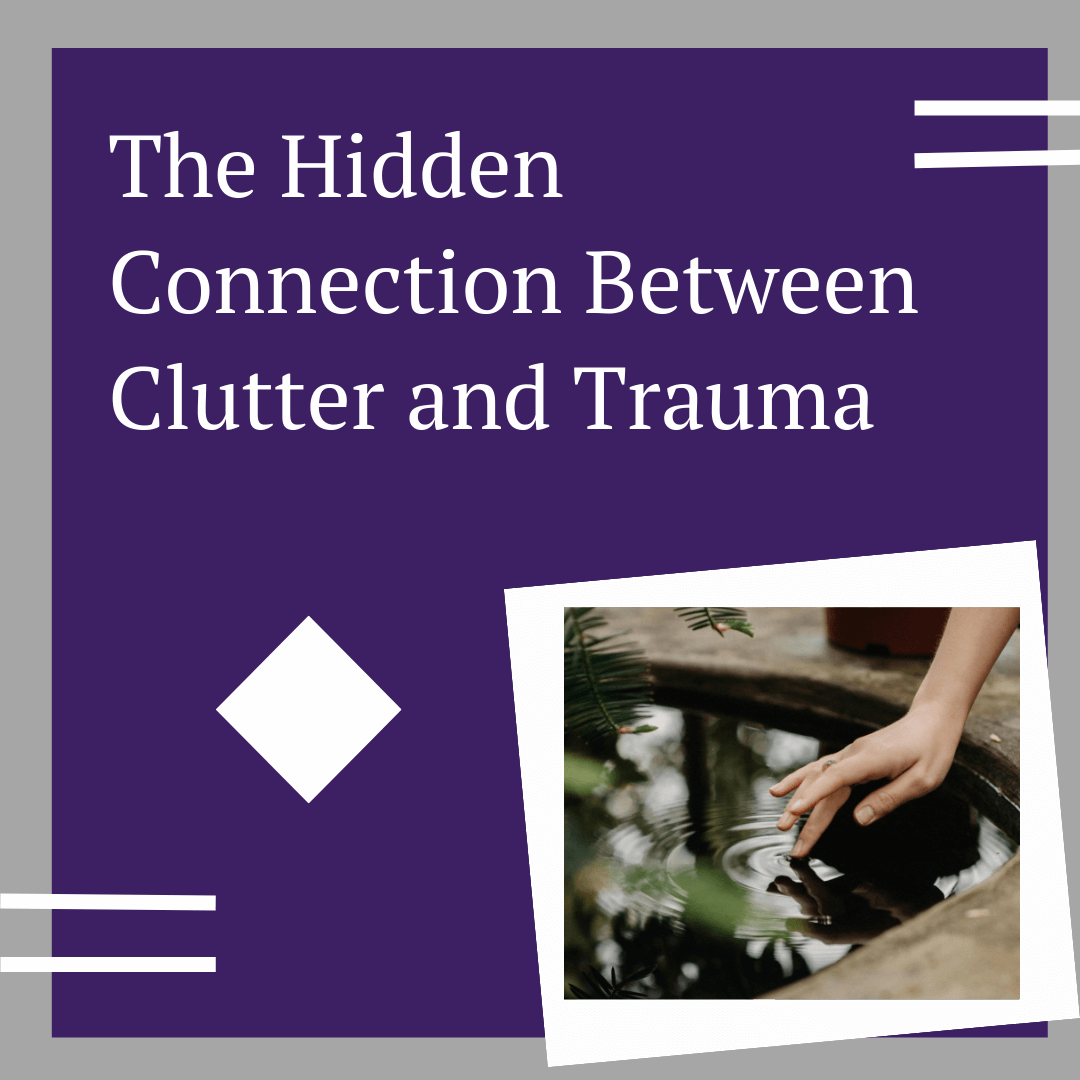The Hidden Connection Between Clutter and Trauma: What a Trauma Therapist in Atlanta Wants You to Know
When life gets busy, it can become more difficult to manage a home, and clutter often accumulates in living spaces. Surprisingly, the mess in our homes may not always be a sign of a busy life; rather, physical chaos can be an outward reflection of internal turmoil and a deeper psychological struggle. Understanding the link between clutter and trauma is crucial for fostering a healthier living space and emotional well-being.
The impact of trauma and how it can lead to clutter.
Trauma can lead to depression, anxiety, social isolation, dysregulation, a lack of focus, and yes, clutter. Sometimes simply clearing out the clutter can help the trauma survivor feel better. However, having someone come in and remove the clutter for them can also be traumatic if it is connected to their trauma.
Keep in mind that trauma is often forced upon the person going through it, and they often feel as though they have no control over what is happening to them. Collecting clutter may be the only way the trauma survivor has learned to have a sense of control over their life. No matter how well-meaning a friend or family member who wants to help with the situation may be, similar feelings of having something thrust upon them are likely to arise for the trauma survivor.
There has been extensive research on the impacts trauma has on the brain and the changes in feelings and behavior. Trauma destroys the feeling of being safe in the world and can lead to a compulsion to constantly be aware of what is happening around you. It becomes more difficult for a trauma survivor to hear a noise or sound and not turn to see what it is than for someone who has not endured trauma. The constant need to know what is happening around you can feel exhausting and taxing on your energy levels, leading to a lack of inner power to put things away. So things ultimately get stacked around the home, car, or workspace with the intention of dealing with them someday.
Clearing out clutter can help relieve trauma symptoms.
The connection between clutter and trauma works both ways in an unhelpful and unproductive cycle. For example, clearing out even small amounts of clutter can help alleviate internal emotional struggles caused by trauma. Additionally, relieving trauma can help to decrease the amount of clutter as you begin to feel better. If this resonates with you, here are some ways to help calm the clutter and help you feel better.
Start Small!
Smaller chunks of time are easier to manage if you’re struggling to know where to start. Set a timer for 10 minutes, and then spend those 10 minutes working in one area of your home. This can be a pile of papers or old mail and dividing it into “trash”, “file”, or “deal with”. Make sure if you don’t get to address what is in the “deal with” pile that you schedule another 10 minutes within the next day or two for working on that pile.
Break it down to Only 10 items.
Another helpful tip is the 5-item start simple trick. Step into a room in your house and look around at what you see. Are there things you no longer use or want? Open one drawer or closet and start purging anything you haven’t used in the last year. If you are using this trick, then you will find 10 items you can either throw away or donate.
When you can’t decide to keep it or get rid of it.
If you’re struggling with an item and deciding if you should get rid of it or not, you can quarantine it for a month in a container or box to see if you miss the item. After a month, if you don’t miss the item, you might even notice a decrease in your feelings about the item, and it could become easier to let go of it. As you clear out things from your past that are no longer useful to you, you also make room for new things that could bring you greater joy. A sense of peace can settle over you when the clutter in your life begins to clear. Having a sense of control over your environment can help to heal the lack of control you experienced during the trauma.
Keep going! Small progress adds up over time!
As you continue taking small steps, eventually they will add up, and you will start to see a difference in the clutter and in how you feel. As you continue to feel better and lighter, your ability to spend longer amounts of time decluttering may increase as well. Once you have your home decluttered, you can move on to management.
FAQ
What about the random item you inherited from someone you cared about who passed away?
The loss of a loved one can be hard and result in a lot of difficult emotions as you process your grief. Sometimes their belongings might bring you comfort by reminding you of them, but what if that item is not useful to you anymore or never was to begin with and its only purpose was to remind you of that person?
Perhaps there is another way for you to remember your loved one. Collecting and putting together pictures or writing out memories of that person might be helpful to you. You could also spend some time visiting places you went with that person, writing a letter, or journaling your feelings over losing them. Taking a picture of the item to upload somewhere safe or put in a scrapbook can also be helpful in allowing yourself to let go of an item. Once you are able to transfer your feelings for that person over to something else that is more useful, it becomes easier to let go of the things that are not useful.
If you feel you could use some help in applying these steps, then reach out. I would be happy to hear about what is happening and share with you how I can help. You can request a free 15-minute phone consultation by calling (678) 744-5369 or by clicking here. I specialize in helping trauma survivors feel calm; overwhelmed, and depressed women to find peace amid the chaos and sadness; anxious people feel safe and worry less; toxic relationship survivors feel more confident; and parents raising a traumatized child feel less traumatized themselves.

